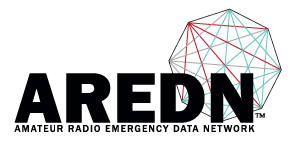We have an existing network on 2.4 GHZ with mostly ManTbox 12-2 hardware. I see references to an upgrade in the 802.xxx protocol. Is the new protocol downward compatible with our existing network? Is our existing hardware still useable if we add the newer devices? This is very confusing.
Bob
You are here
802.11n vs 802.11AC
Mon, 05/22/2023 - 16:03
#1
802.11n vs 802.11AC
Theme by Danetsoft and Danang Probo Sayekti inspired by Maksimer

And yes on 5 GHz the protocols will interoperate. And the 802.11ac gear is superior, being newer generation - faster CPU, more RAM, Gigabit Ethernet ports and maybe somewhat more sensitive receivers.
Orv W6BI
Double check the iw rates of a short distance link on 2GHz to confirm that it is getting higher than any 802.11n device is capable of...
Joe AE6XE
Wiphy phy0
wiphy index: 0
max # scan SSIDs: 16
max scan IEs length: 195 bytes
max # sched scan SSIDs: 0
max # match sets: 0
Retry short limit: 7
Retry long limit: 4
Coverage class: 0 (up to 0m)
Device supports AP-side u-APSD.
Available Antennas: TX 0x3 RX 0x3
Configured Antennas: TX 0x3 RX 0x3
Supported interface modes:
* IBSS
* managed
* AP
* AP/VLAN
* monitor
* mesh point
* P2P-client
* P2P-GO
* P2P-device
Band 1:
Capabilities: 0x19ef
RX LDPC
HT20/HT40
SM Power Save disabled
RX HT20 SGI
RX HT40 SGI
TX STBC
RX STBC 1-stream
Max AMSDU length: 7935 bytes
DSSS/CCK HT40
Maximum RX AMPDU length 65535 bytes (exponent: 0x003)
Minimum RX AMPDU time spacing: 8 usec (0x06)
HT TX/RX MCS rate indexes supported: 0-15
VHT Capabilities (0x339959b2):
Max MPDU length: 11454
Supported Channel Width: neither 160 nor 80+80
RX LDPC
short GI (80 MHz)
TX STBC
SU Beamformer
SU Beamformee
MU Beamformer
MU Beamformee
RX antenna pattern consistency
TX antenna pattern consistency
VHT RX MCS set:
1 streams: MCS 0-9
2 streams: MCS 0-9
3 streams: not supported
4 streams: not supported
5 streams: not supported
6 streams: not supported
7 streams: not supported
8 streams: not supported
VHT RX highest supported: 0 Mbps
VHT TX MCS set:
1 streams: MCS 0-9
2 streams: MCS 0-9
3 streams: not supported
4 streams: not supported
5 streams: not supported
6 streams: not supported
7 streams: not supported
8 streams: not supported
VHT TX highest supported: 0 Mbps
Frequencies:
* 2387 MHz [-4] (30.0 dBm)
* 2392 MHz [-3] (30.0 dBm)
* 2397 MHz [-2] (30.0 dBm)
* 2402 MHz [-1] (30.0 dBm)
* 2412 MHz [1] (30.0 dBm)
* 2417 MHz [2] (30.0 dBm)
* 2422 MHz [3] (30.0 dBm)
* 2427 MHz [4] (30.0 dBm)
* 2432 MHz [5] (30.0 dBm)
* 2437 MHz [6] (30.0 dBm)
* 2442 MHz [7] (30.0 dBm)
* 2447 MHz [8] (30.0 dBm)
* 2452 MHz [9] (30.0 dBm)
* 2457 MHz [10] (30.0 dBm)
* 2462 MHz [11] (30.0 dBm)
* 2467 MHz [12] (30.0 dBm)
* 2472 MHz [13] (30.0 dBm)
* 2484 MHz [14] (30.0 dBm)
valid interface combinations:
* #{ managed } <= 16, #{ AP, mesh point } <= 16, #{ IBSS } <= 1,
total <= 16, #channels <= 1, STA/AP BI must match, radar detect widths: { 20 MHz (no HT), 20 MHz, 40 MHz, 80 MHz, 80+80 MHz, 160 MHz }
HT Capability overrides:
* MCS: ff ff ff ff ff ff ff ff ff ff
* maximum A-MSDU length
* supported channel width
* short GI for 40 MHz
* max A-MPDU length exponent
* min MPDU start spacing
max # scan plans: 1
max scan plan interval: -1
max scan plan iterations: 0
Maximum associated stations in AP mode: 32
Supported extended features:
* [ VHT_IBSS ]: VHT-IBSS
* [ RRM ]: RRM
* [ SET_SCAN_DWELL ]: scan dwell setting
* [ FILS_STA ]: STA FILS (Fast Initial Link Setup)
* [ CQM_RSSI_LIST ]: multiple CQM_RSSI_THOLD records
* [ CONTROL_PORT_OVER_NL80211 ]: control port over nl80211
* [ TXQS ]: FQ-CoDel-enabled intermediate TXQs
* [ AIRTIME_FAIRNESS ]: airtime fairness scheduling
* [ AQL ]: Airtime Queue Limits (AQL)
* [ CONTROL_PORT_NO_PREAUTH ]: disable pre-auth over nl80211 control port support
* [ DEL_IBSS_STA ]: deletion of IBSS station support
* [ SCAN_FREQ_KHZ ]: scan on kHz frequency support
* [ CONTROL_PORT_OVER_NL80211_TX_STATUS ]: tx status for nl80211 control port support